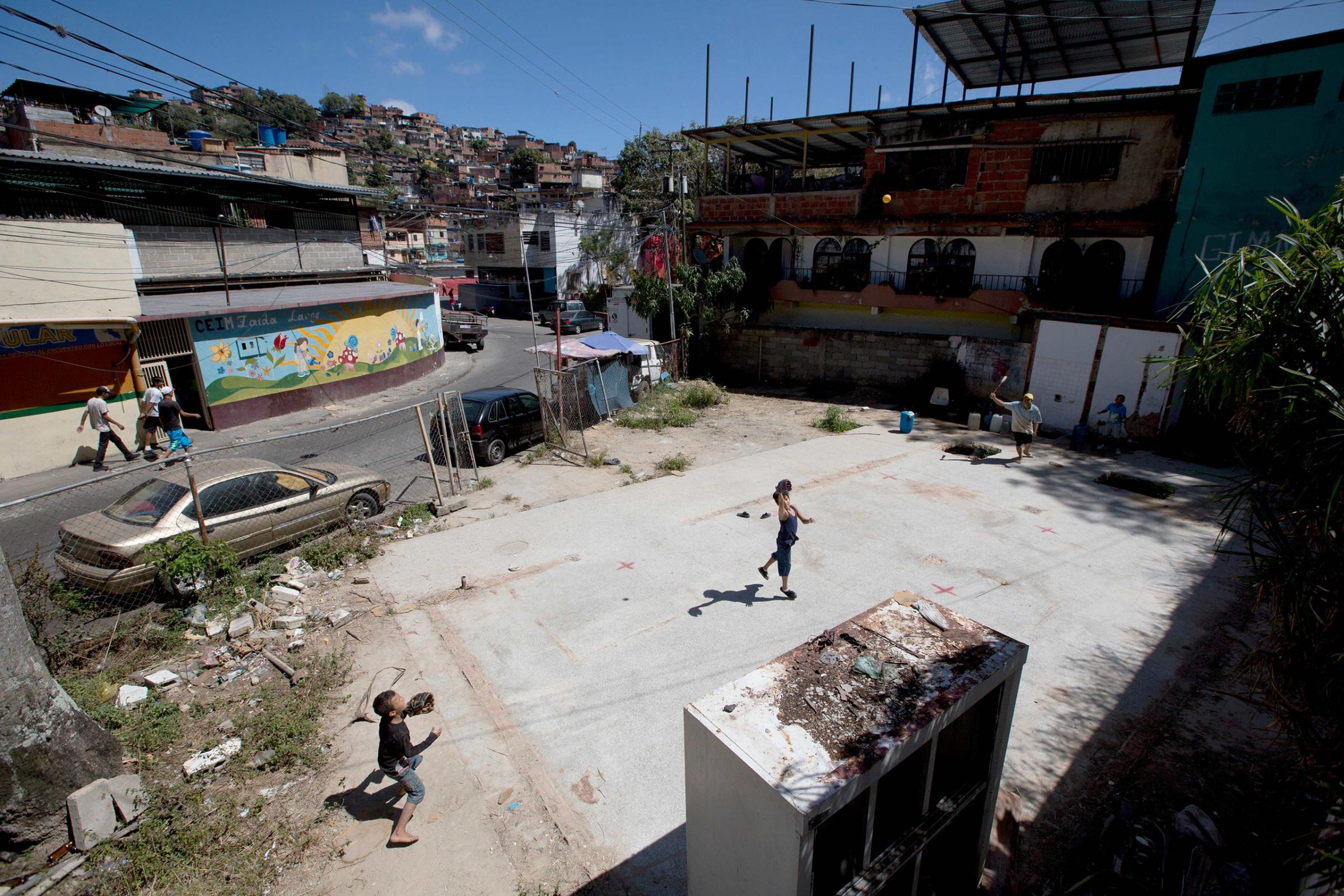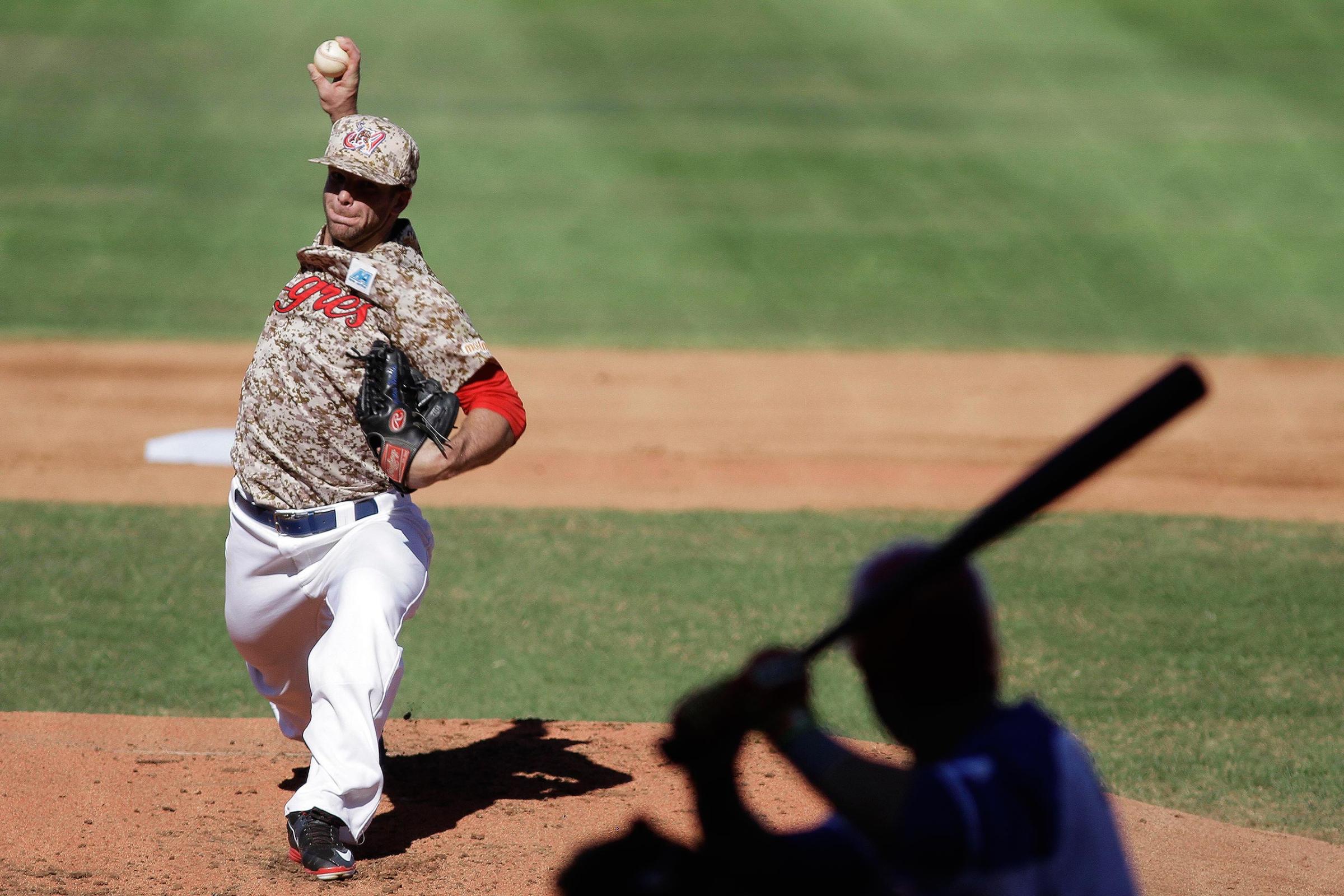
Baseball diplomacy was a major part of President Obama’s historic trip to Cuba. Obama and Cuban President Raul Castro attended an exhibition between the Tampa Bay Rays and defeated Cuba’s national team while the communist government is mulling a proposal to allow players to legally negotiate with Major League clubs instead of defecting to play in the U.S.
Yet just as Cuba moves toward an open-door policy, the talent pipeline from another Latin American country in the throes of leftist revolution – baseball-mad Venezuela – is getting squeezed.
Venezuela provides more players to Major League clubs than any other foreign country except the Dominican Republic. Dozens of Venezuelans will suit up on opening day next month, including two-time MVP Miguel Cabrera of the Detroit Tigers and Jose Altuve, the Houston Astros All-Star second-baseman.
Many were discovered at baseball training academies in Venezuela that were established by Major League Baseball in the 1990s shortly before the late Hugo Chávez ushered in his socialist revolution. At one point 23 of the 30 big league teams ran academies to nurture raw Venezuelan talent.
But as current President Nicolás Maduro, who succeeded Chávez in 2013, grapples with a deep economic crisis, political unrest, food shortages and rising crime, many of these academies are shutting down. Now, only the Tigers, the Rays, the Philadelphia Phillies, and the Chicago Cubs still run training camps in Venezuela – and it’s unclear how long they will stay.
“We´ve been hearing rumors that we will move to the Dominican Republic,” said Pedro González, manager of the Cubs Venezuelan squad which is based in the industrial town of Guacara, 60 miles west of Caracas.
Many of the 51 players at the Cubs academy are impoverished teenagers. They live together in dormitories and practice on two manicured baseball diamonds under the scorching sun. In the afternoons, they lift weights and take English classes. The goal of the academy is to promote discipline and prepare these youngsters for the rigors of baseball in the United States as well as for the cultural shock of moving to another country.
“Everyone’s dream is to travel to the U.S. and play for a major league team,” says catcher Anderson Pérez, a young Cubs prospect, as he stretched his leg muscles before a recent practice.
Just a small fraction of academy hopefuls make it to the big leagues. But many sign minor league contracts which can mean a huge economic boost for their families in Venezuela where, due to a collapsing currency, the monthly minimum wage equals about $25.

Roberto Guzman—APWalden Marcus, a pitcher on Venezuela’s Tigres de Aragua, throws the ball during the first inning of the Caribbean Series baseball game against Puerto Rico’s Cangrejeros de Santurce in Santo Domingo, Dominican Republic, Feb. 6, 2016.
American oil workers introduced baseball to Venezuela in the 1920s and it quickly became the national sport. Early stars who played in the majors included Luis Aparicio and Dave Concepcion. Sensing that much more talent was out there, the Houston Astros opened Major League Baseball’s the first Venezuelan academy in 1989. It quickly produced all-stars like Bobby Abreu and Melvin Mora and two-time Cy Young winner Johan Santana.
“After seeing our success, all the other clubs wanted to come here and do the same thing,” said Andres Reiner, a Venezuelan and former Astros official who persuaded the team to open the academy.
Chavez, who died of cancer in 2013, was a huge baseball fan. But the political upheaval surrounding his revolution – including strikes, a coup attempt against Chavez, and massive street protests – prompted many Major League clubs to move their academies to the Dominican Republic, another deep source of baseball talent.
Teams were also dismayed by rising crime. Venezuela has one of the highest homicide rates in the world while kidnappings for ransom, muggings and robberies are rampant. In 2011, for example, Washington Nationals catcher Wilson Ramos was briefly kidnapped while visiting his mother in Venezuela.
U.S. baseball officials “are afraid to come to the country because the situation on the streets is dangerous,” said Hector Ortega, the Cubs trainer in Guacara. “They read a lot of stuff in the news and they are afraid and they don’t feel safe.”
They also don’t feel welcome. Last year, the Venezuelan government announced that Americans, including baseball scouts and team officials, must apply for visas before visiting the country. Bureaucratic red tape has made it more difficult to import gloves, bats and baseballs. And now, it’s getting harder to find food for the players.
Government price controls and the expropriation of farms and businesses have led to a steep drop in food production and shortages of basic staples. Last year, the Seattle Mariners shut down their Venezuelan academy because it became too difficult to find enough chicken and eggs to feed players and staff members, said Ignacio Serrrano, the baseball columnist for the Caracas newspaper El Nacional.
Phil Gunson, who is based in Caracas for the International Crisis Group, said the food shortages have become so bad that one in 10 Venezuelans is now eating two meals a day or less. Going forward, malnutrition could hinder young players. “Physically, they will not be as well-developed as they were before,” Reiner says.
Although Major League teams still deploy scouts to Venezuela, fewer academies mean that fewer players will be discovered. Says Herlis Rodriguez, who plays for the Phillies’ Venezuelan squad: “Venezuelan talent is in big trouble right now.”
More Must-Reads from TIME
- Introducing the 2024 TIME100 Next
- The Reinvention of J.D. Vance
- How to Survive Election Season Without Losing Your Mind
- Welcome to the Golden Age of Scams
- Did the Pandemic Break Our Brains?
- The Many Lives of Jack Antonoff
- 33 True Crime Documentaries That Shaped the Genre
- Why Gut Health Issues Are More Common in Women
Contact us at letters@time.com